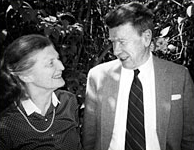- Home
-
About
 Fidelity & Excellence
Fidelity & ExcellenceThomas Aquinas College is unique among American colleges and universities, offering a faithfully Catholic education comprised entirely of the Great Books and classroom discussions.
-
A Liberating Education
 Truth Matters
Truth MattersTruth, and nothing less, sets men free; and because truth is both natural and supernatural, the College’s curriculum aims at both natural and divine wisdom.
-
A Catholic Life
 Under the Light of Faith
Under the Light of FaithThe intellectual tradition and moral teachings of the Catholic Church infuse the whole life of Thomas Aquinas College, illuminating the curriculum and the community alike.
-
Admission & Aid
 Is TAC Right for You?
Is TAC Right for You?Do you enjoy grappling with complex questions? Are you willing to engage in discussions about difficult concepts, with the truth as your ultimate goal?
-
Students & Parents
 Mind, Body & Spirit
Mind, Body & SpiritThere is always something to do at TAC — something worthwhile, something fulfilling, and something geared toward ever-greater spiritual and intellectual growth.
-
Alumni & Careers
 What Can You Do with a Liberal Education?
What Can You Do with a Liberal Education?Nothing speaks more to the versatility of the College’s academic program than the good that our alumni are doing throughout the Church and the world.
- Search
- Giving
TAC Family Portrayed in New Off-Broadway Play

Writing on his personal blog, Mark Langley (’89) reviews an off-Broadway performance of a new play — written and directed by a Tony and Pulitzer award-winning author — about two late members of the Thomas Aquinas College family, Louise and John Schmitt.
The Schmitts were the parents of seven Thomas Aquinas College alumni, including Mr. Langley’s wife, Stephanie (’89), and the grandparents of six graduates and six current students. Mr. Schmitt, moreover, joined the teaching faculty in 1974 and was instrumental in organizing the College’s first Commencement ceremony. He left in 1979 to found the Trivium School, a residential high school offering a classical curriculum in Lancaster, Massachusetts. Many Trivium graduates have gone on to attend the College, and several of the College’s alumni have gone on to teach at Trivium.
Yet the reason that Mr. and Mrs. Schmitt figure so prominently in John Patrick Shanley’s recently debuted Prodigal Son has to do with their work prior to their time at the College, specifically in the 1960s, when Mr. Schmitt was the founding headmaster of the St. Thomas More School in New Hampshire. One of his students was a talented but rebellious boy who found his time at the school to be transformative. That student was Mr. Shanley, who has gone on to great acclaim as the screenwriter of Moonstruck and Doubt.

Featuring music by none other than Paul Simon, Prodigal Son tells the story of Jim Quinn, a character based on the adolescent Shanley. The Schmitts show extraordinary patience and dedication to the young man, for reasons, the audience learns, having largely to do with their own great personal suffering. As Mr. Langley writes:
“Mr. and Mrs. Schmitt .. share a well concealed sorrow, a sorrow caused by the tragic death of their own son. This sorrow becomes the source of Quinn’s redemption. Their hearts softened by grief, and harrowed by suffering, impel them to see the good in Quinn, despite his many expellable indiscretions, and they are able to see him through to the end — drawing out his hidden talents and mercifully allowing him to graduate — thus providing him with a sense of self-worth and new opportunity. …
“The play revealed a hidden chapter in the lives of John and Louise Schmitt. The events occurred when my wife was only a year old. Perhaps strangely, yet somewhat typical of many in that generation, Stephanie’s parents did not air their personal lives. They never spoke about these events to me and rarely if ever to their own children. In point of fact, John and Louise Schmitt suffered through not just one, but the tragic deaths of two of their children.”
The founder and the academic dean of The Lyceum, a classical school in Cleveland, Ohio, Mr. Langley writes that Prodigal Son “is about the mysterious role that suffering plays in life — even the seemingly senseless suffering and heartbreaking pain that comes with the death of one’s own child, one’s own son.” His wife, and her siblings, he adds, are “grateful for the gift that Shanley had given them through this play,” as it has helped to give them “an answer about the mysterious workings of God’s grace in the deaths of their siblings … deaths whose explanations until now had been consigned to the inexplicable mysteries of God’s Divine plan.”

